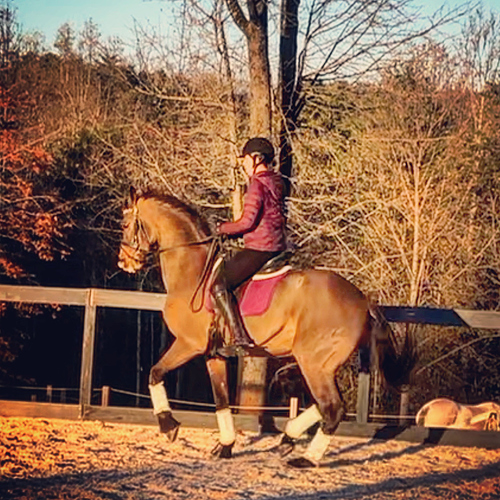Is this a thing? Do some older horses just do better in consistent exercise and program, even in their senior years? I remember the first time I tried to semi-retire my horse while I was at college, he dilapidated. He was still in/out 12/12 with a buddy, but just got super bored, depressed, and developed ulcers. Treated it, got him back in a program, and he was back to his old self. Then tried to turn him out a couple years later and he hated it. Wanted nothing to do with being out in a group 24/7. I’ll say that this is a show horse who’s used to a lot of human interaction (and love attention) and a consistent routine, but I know plenty of people that retire their big time show horses in a field.
For what it’s worth, I don’t think the horse needs or wants to retire right now, it’s just something I’ve been thinking about as he’s been getting older. Obviously I’ve changed his program to maintain soundness as he’s aged. He hasn’t shown in a while and isn’t jumping around the AOs anymore. He gets hacked a few times a week, goes outside the ring on walks as much as possible, and then jumps here and there. He seems to much prefer my frequent visits than being left to his own devices for a long time. He also moves around better the more he does. If he sits for too long he gets creaky and sticky.
I’ve had this horse since I was 14 and adore him. He owes me nothing. He’s also a horse with lots of miles jumping big jumps. my primary goal is to keep him happy and sound for as long as I can. He gets a routine lameness exam every 6-8 months, injections as needed, gets adequan etc. If he tells us he needs something, we do it basically.
Curious as to other people’s experience with this type of horse!
Edit- I guess I should add his age. He’s 19, turning 20 next summer!




 Some people don’t “get” it. They insist that horses prefer to be outside 24x7 and that all horses would love to live a retired life of ease. But, it just isn’t the case - a lot of horses spend their entire life with a routine that includes people, and work, and a safe space to live - to take all of that away from them is unnecessarily cruel if they’re practically screaming that they’re unhappy.
Some people don’t “get” it. They insist that horses prefer to be outside 24x7 and that all horses would love to live a retired life of ease. But, it just isn’t the case - a lot of horses spend their entire life with a routine that includes people, and work, and a safe space to live - to take all of that away from them is unnecessarily cruel if they’re practically screaming that they’re unhappy.